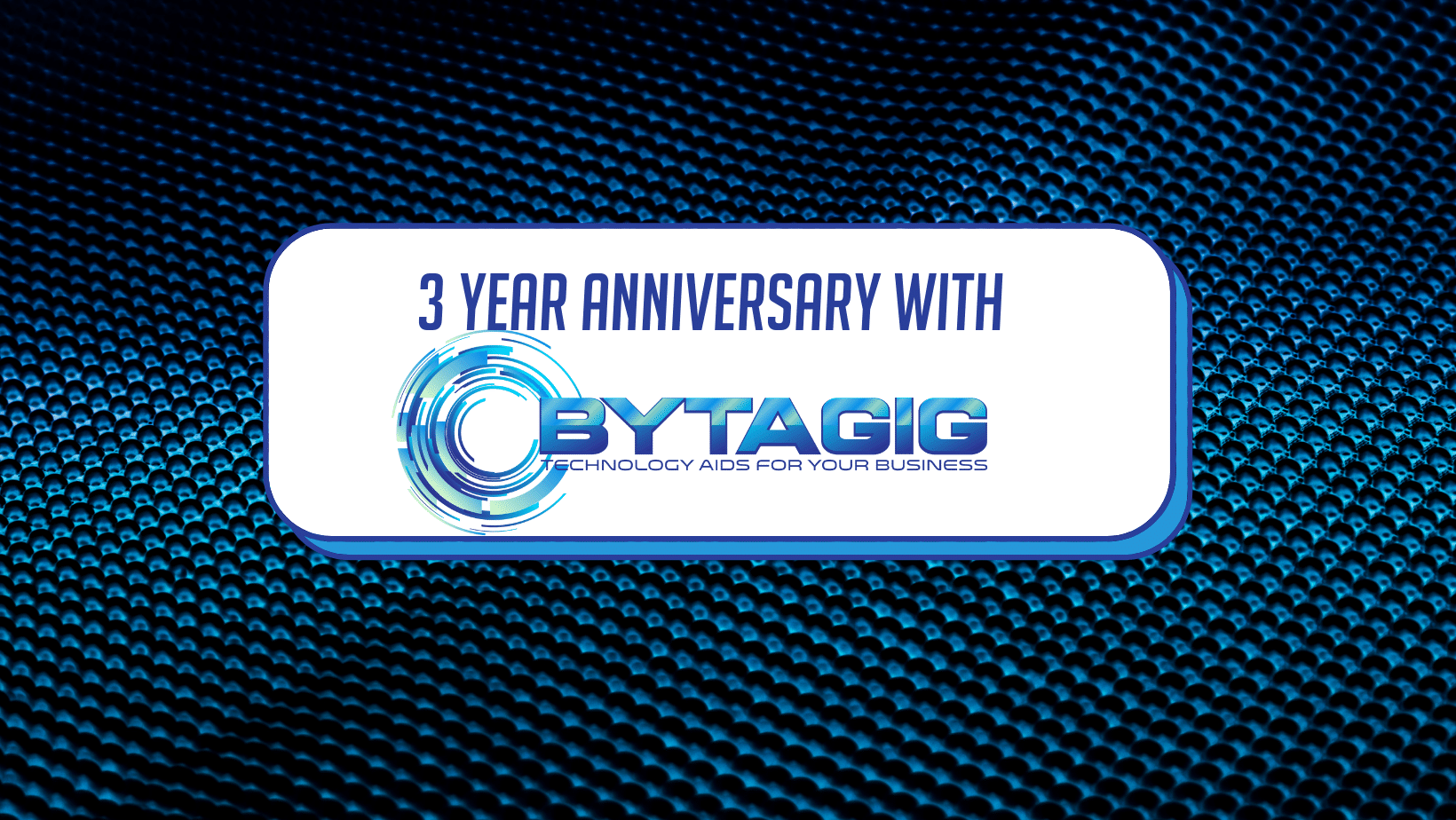
19 Mar What 3 years at Bytagig has taught me
How IT and cybersec changed within the framework of Bytagig

Some years ago my contractor contacted me through a platform and, since then, I haven’t looked back. While cybersecurity was always an interest of mine, it was more so in the niche, hobbyist perspective. After all, security and technology go hand in hand. Even if you have no specific passion for cybersecurity, you still have anti-virus support and probably dealt with a malware problem in your lifetime. But I also found the protection, recovery, and defense of computer systems fascinating. As such, every now and again I’d get to write about the subject in a general sense.
Today though, cybersecurity and IT writing are big parts of my career, thanks to Bytagig. And in that time I’ve learned a good bit, knowledge I can impart to our readers. While I’m no engineer, I don’t think you need to be an expert to practice good habits. Most problems, after all, start at the human level. Heck, even when I had to wrestle with a virus problem, solving it came down to googling solutions or the like.
Now, of course, tangling with cybersecurity subjects has introduced me to a lot of concepts. For example, following the beginning and decisive end of REvil (the ransomware gang) was admittedly a very important moment for me. Important, because I’d been reporting on their antics for so long – something I’d never do on my own time.
So, after all this time, what has Bytagig taught me? What have we accomplished in 3 years?
The rise of remote work before remote work
Back before the COVID pandemic, the concept of remote work was pretty niche. It was an emergency in case of disasters or offered in specific circumstances. Obviously, with a global pandemic, organizations everywhere had to alter up their business model, and today, remote work is quickly becoming a de-facto state (funny what happens when workers realize their current conditions aren’t great).
But here’s the thing, Bytagig was set up for remote assistance and work well before any of this kicked off. Bytagig is what’s known as an MSP, a managed service provider. A fancy way of saying remote IT and cybersecurity services. MSPs have been around for a good while, because a lot of modern IT infrastructure lacked experts, resources, and security models (and we still do).
But Bytagig showed me the value and “reality” of our current security models and general labor landscape. Without realizing it, Bytagig and remote workers were already set up, ahead of the game. Back in 2018, none of us were predicting the outbreak of something like COVID. Now though I truly understand the importance and value of remote working and remote services.
The unfortunate fragility of current cybersecurity infrastructure
Bytagig has a lot of goals, but the primary relates to providing unilateral support for companies, typically within the SMB range, regardless of where they’re located.
But it’s shown that modern demands for IT support and cybersecurity are vast, and in general, the current environment cannot sustain these workloads. You don’t have to look very far to observe the deluge of cyber attacks. From phishing to ransomware, any enterprise using the internet (and that’s basically all of them) for work purposes is a target.
Resources are so lacking that some businesses cannot correctly detect malware incidents, and as such, have no way of recovering from them. Then there’s lack of backup options, lack of education, and total absence of very necessary expert resources. On the off chance a reader is looking for a career, by the way, check out cybersecurity and IT, they’re in desperate need of knowledgeable staff.
Bytagig has grown considerably, and it’s a two-punch reason. One, again, is obviously the expansive demand for remote support. The other is just because the IT support isn’t there on a wide scale, at least not for smaller organizations. And, just because a business is small doesn’t make it any less important.
But the point remains: our cybersecurity readiness in the United States (and perhaps even globally) is too weak. Technology has evolved beyond us, and the lack of expertise means less cohesive understanding of it. While automated defenses are great and all, we still need a field of people who can engineer it.
Security intrusions haven’t changed too much
Cyber-attacks have a long history, and despite everything Bytagig and other pros respond too, you’d be surprised at the common denominator. A majority of attacks, intrusions, and malware problems result from phishing attacks. Social engineering is quite effective since taking advantage of human error yields a net positive for attackers.
That’s why a lot of my articles get straight back to “common sense” as an all-point defense against numerous cyberattacks. In general, you don’t have to be an expert to catch common attack tactics, just some basic awareness. And it pays dividends, literally and otherwise.
Think about all the time and literal money you save by avoiding downtime or hardware replacement. And that goes for the general public, too. If you have to format your device, or even replace something, that’s money and time out of your pocket. But even with this knowledge, many find themselves the unfortunate victims of phishing schemes.
And speaking of. . .
Hackers don’t have to be specialists
In the time I’ve researched and reported on cybersecurity events, a surprising detail I’ve learned is that the game of hacking is very accessible. Dark web forums for ransomware kits and services exists like its own realm of IT support. In other words, if you think critical infrastructure attacks or ransomware strikes are carried out by elite, clandestine organizations, you’re off the mark.
Not that you should be faulted for thinking that. Back in the early days, if you wanted to conduct serious cyber-attacks, it required numerous experts, funding, and planning. Unfortunately, the simplification of attacking methods means it’s easier for the layman to utilize malware kits (or the like).
This is an unfortunate inverse of today’s defense climate. Where the entry level into the field of cybersecurity and IT defense is higher, for attackers, it’s not so complicated.
Thus far, these are some of the key takeaways I’ve learned from my time with Bytagig. The cybersecurity and IT world have changed drastically in this time, and it’ll be interesting to see how things continue to shift.
-Douglas James
As always, you can learn about the services Bytagig offers by contacting us today.
Share this post:

Sorry, the comment form is closed at this time.